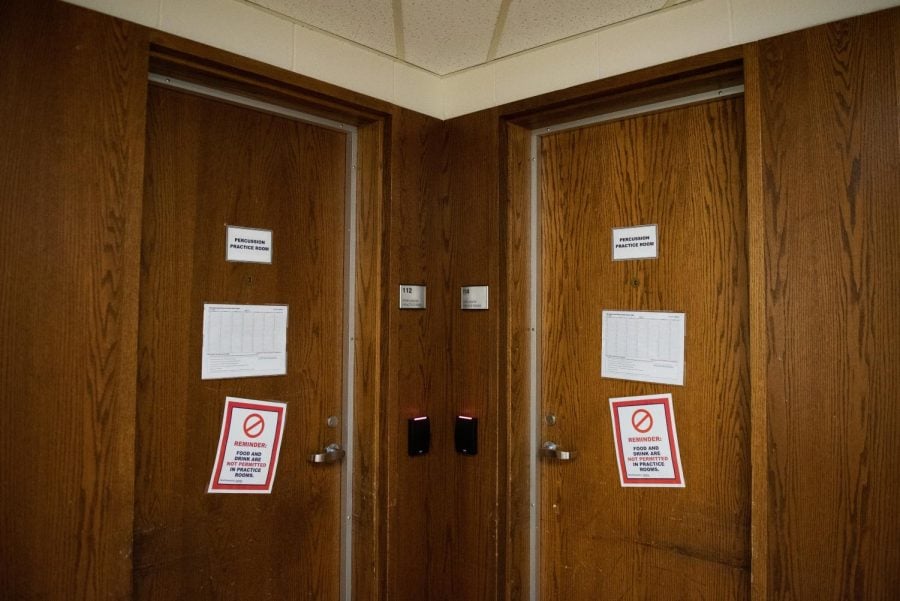Non-major student musicians frustrated by Bienen practice room restrictions
Kimberly Espinosa/Daily Senior Staffer
The Regenstein Hall of Music. Non-majors enrolled in private lessons or an ensemble can access first-floor practice rooms here.
April 4, 2023
Weinberg junior Jacob Milendorf enjoys playing piano but often has trouble finding one on campus when he wants to practice.
He said the pianos in the residence halls are always out of tune, so he regularly asks his friends in the Bienen School of Music to unlock practice rooms with pianos for him.
Most non-music major musicians across campus, including Milendorf, do not have access to these spaces. Unless non-music majors can spend between $100 to $460 per quarter for private or group lessons or carve out time to join an ensemble, they cannot use Bienen practice rooms.
Eligible students have access to more than 130 practice rooms in several Bienen buildings from 7 a.m. to midnight every day. These spaces also offer musicians access to various instruments including pianos, harps and percussion equipment.
McCormick freshman and bassist Timofei Asinski said Bienen’s restrictions on practice room use are relatively unique in comparison with other music schools.
“Just speaking with home friends, who are similar to me in that they’re involved in music but are not music majors, I hear that they don’t have issues using music school resources,” Asinski said. “It’s just tough that Northwestern doesn’t let us do that.”
Bienen boasts more than 100 pianos, which exceeds the number of declared piano majors who attend the school, according to Milendorf.
Milendorf said he looked into paying for lessons, but found that the school mostly offers opportunities to learn “eurocentric” and classical music. He said the school does not offer lessons in genres that interest him, like contemporary, funk, or rock ‘n’ roll music.
“It’s kind of like when you’re a kid and your mom just signs you up for some piano lessons and you have to play whatever the teacher makes you do,” Milendorf said. “At Northwestern, you can’t actually play what you want to play — you have to play what somebody else picks for you.”
He added that a lot of musicians on campus could benefit from increased access to Bienen instruments and tools.
Milendorf said requiring lessons to access practice rooms confines students to the traditional genres taught in Bienen and defeats the purpose of individual expression through music.
“(Music) can connect people of all sorts of cultures, which Northwestern seems to not care about because of the singular type of music that they teach,” Milendorf said. “Music has a cohesive ability. It brings people together and brings people into the moment.”
Weinberg sophomore and flutist Anthony Xie played in a band for his first five quarters at NU, but left this spring due to other time commitments.
He said people who want to play their instruments for fun are inconvenienced by the practice rooms policy because they may not have three to four hours per week to dedicate to an ensemble.
“If their worry is that there would be too many people in the rooms at any time, I feel like filling out some form to get access to a room for a day could solve that,” Xie said.
In an email to The Daily, a spokesperson for Music Facilities at Bienen reiterated current practice room policies but did not directly respond to questions about non-major access to these spaces.
Email: [email protected]
Twitter: @JulianAndreone
Related Stories:


